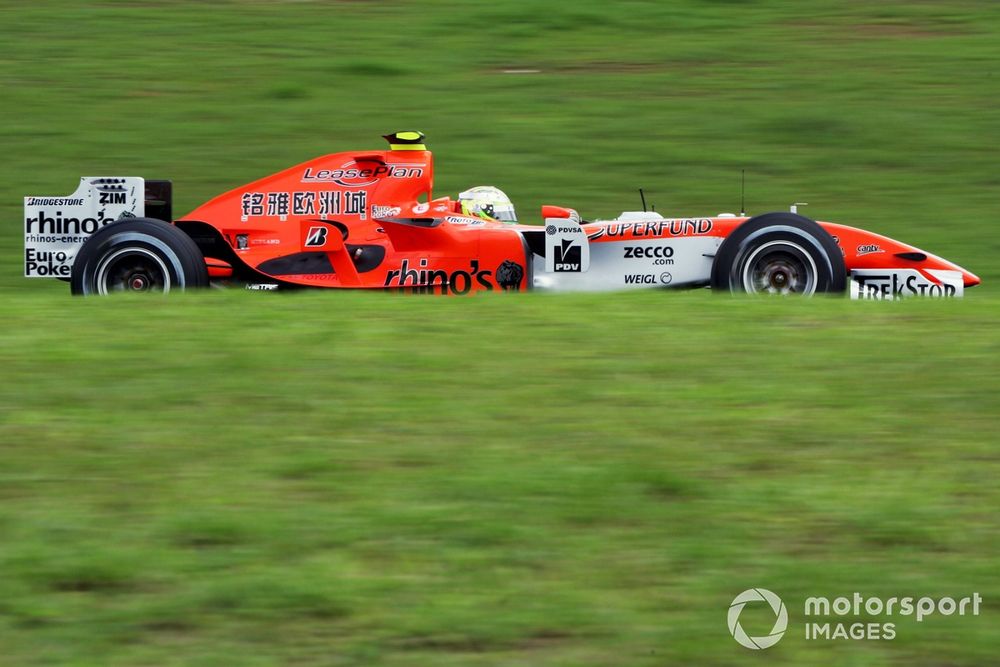The idea of a wildcard system being introduced to Formula 1 to offer race opportunities for rookie drivers was put up for discussion by teams and series bosses this week.
Autosport has learned that one of the items put forward for evaluation at a meeting of the F1 Commission in London on Tuesday was whether a wildcard scheme had merit to be introduced.
The impetus for it was believed to revolve around offering a greater opportunity for young or rookie drivers to get race experience in F1 – and it is something that works well in other categories like MotoGP where extra bikes are entered.
However, introducing wildcards in F1 would be far more complicated, because there is zero scope to allow teams to enter third cars because of financial and logistical considerations.
Firstly, with F1 teams running to cost cap rules, and many teams already battling to stay under the budget limit, there is no financial headway to run third cars.
There would be logistical hurdles to overcome too. Teams only bring two built up chassis to a race weekend, and there would be endless complications to run an extra car — even before any consideration is given to personnel to run them, plus garage space in the pitlane which is already limited.
The only way a wildcard system could work in F1 would be for the young driver to stand in for one of the regulars.

Teams that finished fifth or lower in the constructors’ standings were allowed to field a third car on Fridays in the mid-2000s, but this rule was dropped for 2007
Photo by: Gareth Bumstead
This idea, of swapping drivers, is understood to have been the main thrust of the proposal at the F1 Commission. However, there was a swift conclusion that it would not be a good move for teams nor fans.
While big name stars like Max Verstappen, Lewis Hamilton and Lando Norris have to sit out one free practice session per year for a rookie to take over their car, it was felt that extending this to an entire weekend would be a step too far.
Although the wildcard idea has been shelved for now, F1 and teams still want to evaluate ways to give rookies more track time. This could come from extra practice sessions.
Teams also agreed that there are occasions during the year anyway, like happened with Oliver Bearman in Saudi Arabia, where youngsters do get the chance to race because one of the team’s established drivers is unwell.
How MotoGP’s wildcard system works
MotoGP has long had a wildcard system, where extra bikes have been run by manufacturers at selected events over the course of the year.
Long ago the main motivation for this was to give locals an outing at their home events, but more recently the wildcards are test riders.
The system currently in place revolves around a concession system, where different manufacturers are graded according to how many points they scored in the previous season.
For the 2024 season, it means reigning champion Ducati cannot run any wildcard entries, while KTM, Aprilia, Honda and Yamaha get allowance for six entries.
Wildcard riders cannot score for the teams’ championship unless they are the lead rider home, but any points they do score do count for the riders’ championship.
Watch: Why Everyone was So Angry at the F1 Hungarian Grand Prix — Race Analysis








